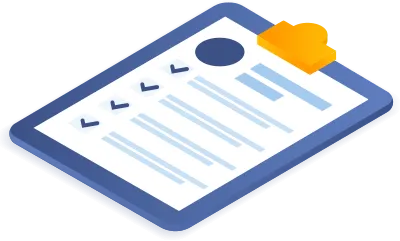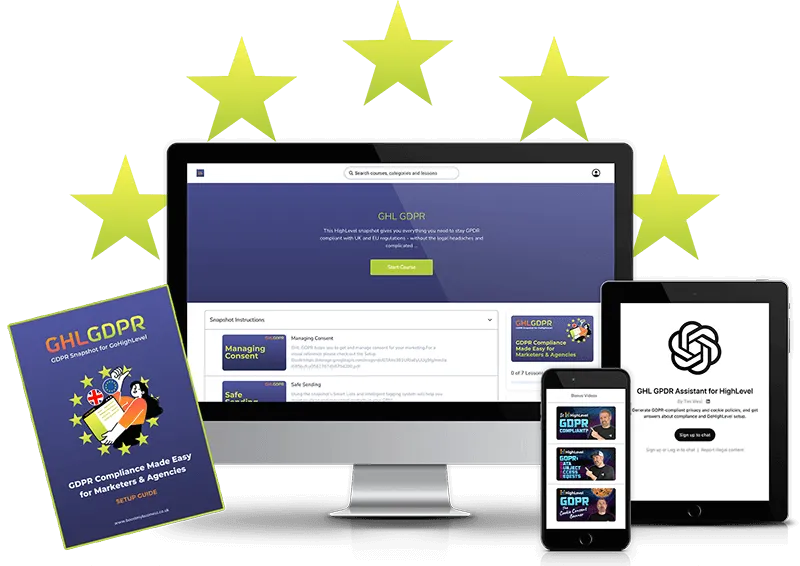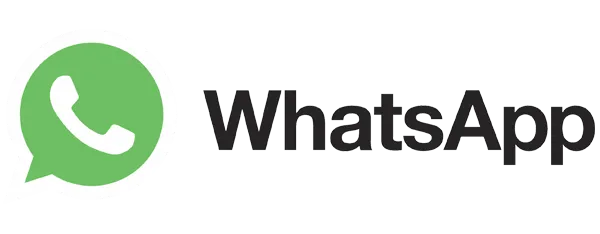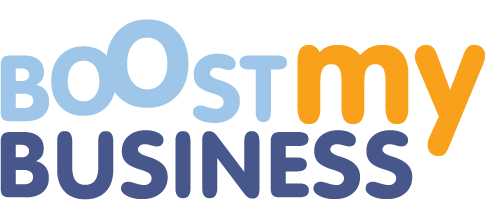GDPR Consent for SMS, WhatsApp & Email Marketing using HighLevel
How to stay GPDR compliant with HighLevel
This guide provides a practical summary of what UK and EU businesses need to know when using Email, SMS, and WhatsApp under GDPR and PECR.
This article is part of a larger comprehensive guide on staying GDPR compliant when using HighLevel.
Disclaimer: The information provided in this guide (and any associated downloads or web pages) is for general informational purposes only. While every effort has been made to ensure accuracy, this content does not constitute legal advice. GDPR and data protection laws can be complex and may vary depending on your specific circumstances or jurisdiction. You are strongly encouraged to consult a qualified legal professional or data protection officer (DPO) to ensure your business practices, policies, and communications are fully compliant.
GDPR & Communication Overview
In the age of automated communication, businesses must balance efficiency with legal compliance. Under UK GDPR (and EU GDPR), you must have a lawful basis to contact individuals. The main lawful bases discussed on this page are:

Contractual Necessity
Fulfilling a service, e.g. appointment reminders or delivering lead magnets

Legitimate Interest
Responding to a contact form or appointment booking

Consent
Required for marketing messages (including newsletters, promotions, SMS/WhatsApp)
While there are 3 other lawful bases, (Legal Obligation, Vital Interests and Public Task) they are not relevant to marketing in general or the HighLevel platform.
We'll cover our main 3 below and how they are applied to email marketing, SMS (or text message marketing) & WhatsApp.
Email Marketing and HighLevel: How to stay GPDR compliant
Email marketing is widely used by many businesses to promote products and services. With HighLevel, we have a whole bunch of email tools at our fingers and it's easy to get carried away with our email messaging. Under GDPR, if you want to send a contact regular marketing emails you must have their consent. But what about normal email sending? Let's dive a little deeper...
What Email Messages Are Allowed Without Consent?
You can legally send a direct reply to someone who filled out a general contact form, or sent you an email, even if they didn’t give explicit marketing consent. When someone fills out a contact form and submits their name, email, and message, they're initiating communication with you. This means:
"You have a “legitimate interest” in replying to their enquiry."
Under UK GDPR and EU GDPR, legitimate interest is a valid legal basis for:
Responding to customer enquiries
Handling support requests
Following up on service-related questions
This does not require separate marketing consent.
| Action | Legal? | Why |
|---|---|---|
| Send a reply email to their enquiry | ✅ Yes | Fulfilling a legitimate interest |
| Send follow-up messages to clarify their query or offer a quote | ✅ Yes | Part of the same communication thread |
| Add them to your marketing list and send newsletters | ❌ No | Requires separate, clear consent |
Can Your Email Replies Be Automated?
Yes, It's absolutely okay for your reply to be automated, as long as it’s directly related to the enquiry made through the contact form. Under UK and EU GDPR, automated responses to user-initiated contact are permitted without marketing consent. The key rule is: The content must be relevant to their enquiry - not promotional in nature.
Just be sure to avoid including promotional CTAs like “Check out our latest offer” unless it’s clearly helpful and not salesy.
Do I Need Consent To Send Appointment Reminders Via Email?
No, you are allowed to send emails related to the appointment, without needing separate marketing consent. When someone books a call or meeting (via your HighLevel calendar, Calendly, etc.), you’re entering into a pre-contractual or service-related interaction.
Under UK/EU GDPR, that means:
You can email them appointment confirmations
You can send reminders or follow-ups related to that meeting
This falls under the lawful basis of contractual necessity or legitimate interest
| Action | Legal? | Why |
|---|---|---|
| Appointment confirmation email | ✅ Yes | Service-related |
| Reminder email or SMS | ✅ Yes | Operational necessity |
| Follow-up email after the appointment | ✅ Yes | Still linked to the meeting |
| Send a proposal or quote based on discussion | ✅ Yes | Part of the engagement |
| Ask if they’d like to join your email list | ✅ Yes | Offer a clear opt-in |
What Email Marketing Can't You Do Without Consent?
To put it simply, you cannot add contacts to ongoing marketing sequences unless they explicitly consent.
| Action | Legal? | Why Not |
|---|---|---|
| Add them to your marketing list automatically | ❌ No | Requires active consent |
| Enrol them in a nurture email sequence | ❌ No | Must opt in first |
| Use their data for retargeting/ads | ❌ No | Requires cookie & ad consent |
Just because a contact completes a form on your website, for example to download a lead magnet, you are not allowed to add them to a nurture sequence unless they have opted-in!
How To Get Email Marketing Consent Using HighLevel
HighLevel has provided some capabilities to their system to help you get and store consent.
When creating a form inside HighLevel, you have the option to drag and drop an additional form element to your form called T & C.
This element allows you to add up to 2 tick-boxes (opt-ins) to your form. You can customise the text, add in links to terms or privacy policies, and make the fields required if needed.
You can use these 2 T & C opt-ins in a variety of ways to ensure you are gaining consent for your marketing communication. Below is some example wording you can use:
I’d like to receive occasional tips, updates, and offers via email from [Your Business]. I can unsubscribe at any time. [Privacy Policy]
I’m happy to receive product news, tips and offers from [Your Business] via WhatsApp. You can opt out at any time. [Privacy Policy]
Yes, please send me text messages with exclusive deals and important updates. Standard rates may apply. You can opt out at any time
I agree to receive marketing messages from [Your Business Name] via email, SMS, and WhatsApp. I can withdraw my consent at any time
As you can see from the examples, you can add more than one marketing channel to a T & C opt-in. So, given we have have 2 opt-ins at our disposal, you have a variety of options. A person might be fine with getting email marketing but not SMS. Let them choose.
Remember, you do not need consent to send a lead magnet, as long as the lead magnet was explicitly requested by the user (e.g. via a form) and you are only sending the lead magnet itself.
Where Is Consent Stored In HighLevel?
Each time a HighLevel form is submitted the submission data is stored in HighLevel. You can access this by heading to
Sites > Forms > Submissions
The data contains the date and time the form was submitted, plus the wording you used as part of the T & C form element.
This record is your proof of consent and is fully GPDR compliant.
We do not recommend creating your own terms and conditions fields using form elements unless you are also independently logging the 'date' and 'consent wording' in Custom Fields. Even then, there's the possibility that these fields could get overwritten. (Saving the information as a Note on the contact record is a work-around)
We do not recommend using the consent option on the default Calendar forms to gain comnsent for marketing. This consent data is not stored/accessible and cannot be relied upon. Update November 2026: Consent is now stored and visible inside the appointment details. We're good.
We do recommend using HighLevel's inbuilt T & C element for all your consent logging. Notes can be deleted, Custom fields can be updated, and opt-in wording can be altered. In HighLevel's system the T & C submission is not accessible as a variable an any account level, so the consent that HighLevel stores can be considered 'accurate and untampered', which could protect you in any legal disputes.
We do recommend using tags to monitor marketing channel opt-ins. Should consent be withdrawn, you'll need a method to remove people from mailing lists.


Looking for a quick GDPR soloution?
Built by the UK’s first certified HighLevel admin, this powerful GDPR toolkit snapshot gives you everything you need to stay compliant with UK and EU regulations - without the legal headaches.
SMS Marketing and HighLevel: How to stay GPDR compliant
SMS or text message marketing can be an incredibly useful tool for any business, especially when used via platforms like HighLevel, however, it's tightly regulated under GDPR. It's a form of personal data processing and direct marketing, so getting it right matters.
A mobile number is personal data under GDPR, so:
You must have a lawful basis to use it (includes consent)
You must handle it securely
You must let users access, correct, or delete it upon request
What SMS Messages Are Allowed Without Consent?
Service or transactional SMS messages do not require consent.
| SMS Type | Consent Needed? | Legal Basis |
|---|---|---|
| Appointment reminders | ❌ No | Contractual necessity / legitimate interest |
| Service updates (e.g. delays, rescheduling) | ❌ No | Contractual necessity |
Best practice tips for SMS reminders:
Keep them purely service-related - Stick to logistics, confirmations, and polite thank-yous
Avoid promotional language unless consent is given - No offers, upsells, or cross-selling
Use clear opt-in wording on your booking or contact forms if you want to send promotional SMS in future
What SMS Messages Require Consent?
Any promotional or marketing messages require consent.
You can’t rely on “they gave us their number, so it’s fine.” You must get explicit, informed consent - ideally via:
A tickbox on a form
A double opt-in confirmation (optional but ideal)
Tagging or logging when and how consent was given
* This is quite a grey area, however most GDPR experts recommend that consent is required to send SMS review requests, so err on the side of caution.
When Must You Include an Opt-Out in SMS?
In most cases, if the SMS is marketing-related, then you absolutely must include an opt-out option in every message to comply with GDPR and PECR.
Even if a person has previously consented, every marketing message must include this to remain compliant.
Amendment - October 2026: It is now our recomendation that an opt-out option does not need adding to every single SMS message. To remain GDPR compliant we now suggest that an opt-out option is added to all of the below:
The first marketing SMS you ever send a contact.
The first marketing SMS you send a contact in any new sequence.
Any non-conversational promotional stand-alone messages
When Don't You Need an Opt-Out in SMS?
Service or transactional SMS messages do not require an opt-out.
These messages are not considered marketing, so you don’t need an opt-out in them - though you can include one as a courtesy.
Best Practices (and Common Mistakes) with Opt-Out Messaging
Do: Include an opt-out in every marketing SMS (see above for recent changes)
Do: Keep records of opt-outs in your CRM
Do: Sync opt-out preferences across SMS, email, and WhatsApp if possible
Don't: Assume past opt-in gives you an exemption
Don't: Bury the opt-out in long messages
Don't: Use vague or hard-to-follow instructions
SMS Opt-Out Settings in HighLevel
HighLevel has provided some capabilities to their system for SMS compliance.
However, they do not fulfill the requirements of GDPR.
Settings > Phone Numbers > Advanced Settings > SMS Compliance*
*Only applies to sub-accounts using Lead Connector.
In the above setting control panel, you can add or remove 2 options:
Make SMS compliant by adding an opt out message
Make SMS compliant by adding a sender information
These controls, turned on by default for new accounts, automatically append 2 'text items' to the end of the first SMS message you send to a contact. The first contains an opt-out message and the second your business name (Sender ID). These message can be customised in the control panel and even turned off entirely.
While the Sender ID and opt-out language help you adhere to the U.S based A2P 10DLC regulations, GDPR states that this information must be added to your first marketing message sent via SMS, AND your first marketing message in every new campaign - not just the first ever message sent.
As a solution to this issue, in order to remain GDPR compliant, we recommend manually adding Sender ID and an Opt-out message to the start of each and every SMS marketing campaign you send.
Automatic SMS Opt-Out Settings in HighLevel
Regardless of whether you add an opt-out message. If a contact replies with certain keywords to an SMS message they will automatically be set to DND (Do Not Disturb) for the SMS Channel in your sub-account.
The following keywords will trigger the DND:
STOP, UNSUBSCRIBE, END, QUIT, STOPALL, REVOKE, OPTOUT, and CANCEL
What happens when these keywords are used:
Twilio/Lead Connector automatically blocks future messages to that number (DND)
The system sends an automatic confirmation reply, which does mention you can re-join by replying with the word START
Once someone has unsubscribed they should receive no further marketing texts. This also means you are not allowed to send them any SMS messages asking if they would like to re-join your SMS marketing list.
Summary: How to Stay Safe with SMS Under GDPR When Using HighLevel
Do: Use SMS for reminders without consent
Do: Get explicit opt-in for promotional texts
Do: Include opt-out instructions in every marketing SMS
Do: Include Sender ID in every marketing SMS
Do: Use tags or fields to manage consent in HighLevel
Do: Offer SMS marketing as an opt-in option
Don't: Send marketing texts without opt-in
Don't: Assume consent from form fills or bookings
Don't: Forget to log how/when consent was given
Don't: Buy or scrape phone lists
Don't: Pre-tick opt-in boxes (not compliant)
Don't: Send spammy SMS messages

Looking for a quick GDPR soloution?
Built by the UK’s first certified HighLevel admin, this powerful GDPR toolkit snapshot gives you everything you need to stay compliant with UK and EU regulations - without the legal headaches.

WhatApp Marketing and HighLevel: How to stay GPDR compliant
WhatsApp marketing is powerful, especially when used via platforms like HighLevel, but it's also tightly regulated under GDPR and WhatsApp’s own Business Policy.
So, is WhatsApp marketing allowed under GDPR? It is, but you must have explicit consent before sending any marketing messages through WhatsApp. Consent must be:
Freely given
Informed
Specific to WhatsApp
Proven (you must log it)
What WhatsApp Messages Are Allowed Without Consent?
Service or transactional WhatsApp messages do not require consent.
| Type of Message | Consent Needed? | Legal Basis |
|---|---|---|
| Order confirmation | ❌ No | Contractual necessity |
| Appointment reminder | ❌ No | Legitimate interest |
| Support response | ❌ No | Customer-initiated interaction |
| “We’ve received your enquiry” | ❌ No | Fulfilling a direct request |
| “Here’s a quote you requested” | ❌ No | Directly related to prior interaction |
What WhatsApp Messages Require Consent?
| Type of Message | Consent Required? |
|---|---|
| “We’re launching a new product” | ✅ Yes |
| “Here’s a special offer” | ✅ Yes |
| “Join our webinar” | ✅ Yes |
| “We thought you’d like this” | ✅ Yes |
| Re-engagement messages | ✅ Yes |
"If it promotes your business, it’s marketing, and requires opt-in - even if it's helpful."
How to Get Compliant WhatsApp Consent
Do: Include a tickbox on forms
Do: Clearly mention WhatsApp in your privacy policy
Do: Allow users to opt out or change preferences easily
Do: Store consent proof in your CRM (tag or custom field)
Don't: Start marketing chats without opt-in
Don't: Bundle WhatsApp into “general marketing” unless specifically stated
Don't: Use WhatsApp numbers from contact forms without permission
Practical Example (GDPR-Safe WhatsApp Consent Checkbox)
Can I Send Appointment Reminders via WhatsApp?
The short answer is YES, you can send appointment reminders without separate consent. These are service-related messages, not marketing. Under UK and EU GDPR, you're allowed to send messages that are:
Operational
Expected
Necessary to fulfil the service
Proven (you must log it)
This includes:
Appointment confirmations
Reminders (e.g. “Your booking is tomorrow at 2pm”)
Rescheduling notices
Arrival updates
"These fall under contractual necessity or legitimate interest, so you don’t need marketing consent to send them."
Can I Send Review Requests via WhatsApp?
Technically it's allowed without consent, if the review is about that specific appointment/service and sent shortly after. It's then treated as part of post-service follow-up, not direct marketing.
However, it depends on how it's phrased and timed.
Acceptable:
“Thanks for visiting us today - we’d love to hear your feedback: [review link]”
Not Acceptable:
“Leave a review and get 10% off next time!”
That’s marketing (requires consent)
WhatsApp's own policy is:
Review requests are allowed if they’re classified as “post-transactional”
But can’t contain incentives or promotional language
Must be part of a pre-approved template message
In Conclusion: Stay Compliant, Stay Confident
Navigating GDPR for email, SMS, and WhatsApp marketing doesn’t have to be overwhelming. With the right systems in place, you can confidently grow your list, connect with your audience, and build trust - all while staying on the right side of the law.
This guide has walked you through the essentials of:

What you can and can’t send without consent

How to collect and manage marketing permissions properly

Best practices for suppression lists, double opt-in, and message content

Specific rules for SMS and WhatsApp under UK and EU law
You'll be pleased to read that HighLevel is fully GDPR compliant on their part. But ultimately it's just a tool, and tools need to be used in a compliant way - gaining consent for marketing is an important of this.
Whether you're an agency managing client campaigns or a solo business owner sending your first newsletter, following the principles on this page will protect your brand - and your audience.

Meet Tim, Your HighLevel Expert
"With over 25 years of digital marketing expertise and as the UK's first certified HighLevel administrator, I've helped businesses of all sizes transform their marketing operations and achieve dramatic growth.
GDPR compliance is essential for every business operating in the EU/UK, including businesses who provide services to customers in that area.
However, it's often overlooked and and under-prioritised, which could leave your business open to serious penalties for non-compliance."


Social Media Management
Lorem ipsum dolor sit amet, consectetur adipiscing elit, sed do eiusmod tempor incididunt ut labore et dolore magna aliqua. Ut enim ad minim veniam, quis nostrud exercitation ullamco laboris nisi ut aliquip ex ea commodo consequat. Duis aute irure dolor in reprehenderit in voluptate velit esse cillum dolore eu fugiat nulla pariatur.

Ready to get GDPR compliant?
Introducing: The All-in-One Snapshot to Keep Your Communications Compliant


The HighLevel GDPR Snapshot gives you plug-and-play HighLevel templates, compliant workflows, policy generators, and a setup guide. Everything you need to make compliance part of your growth strategy.

GDPR Compliance Made Easy for HighLevel Marketers & Agencies
Don't Delay! Get the GDPR HighLevel snapshot today and kiss goodbye to GDPR worries.
GDPR Snapshot FAQ
Still unsure this is right for you? Check out the FAQ.
Is this snapshot only for UK users?
No - it’s designed to comply with UK and EU GDPR, so it’s perfect for anyone targeting customers in the UK or Europe. If your clients or leads are based there, this applies to you.
What platforms does it work with?
It’s built for HighLevel - so if you use GoHighLevel, you’re good to go. Just import the snapshot and start using the prebuilt assets.
Is there any training included?
Yes - a short companion course is coming soon, walking you through how to set everything up and how to talk to clients about compliance. You'll get access as soon as it's ready.
Do I need separate consent for each channel?
Yes. The snapshot includes granular consent options so users can opt-in to email, SMS, and WhatsApp individually - in line with GDPR best practices.
Can I use this for client accounts?
Absolutely - this is ideal for agencies. Use it as-is or customise it for each client. It saves hours of setup time and helps you sell GDPR compliance as a premium add-on.
Does this replace legal advice?
No. This snapshot gives you a solid, compliant working system - but it’s not a substitute for formal legal advice. Always check with a legal professional if you're unsure about specific situations.
What if I already have forms in HighLevel?
No problem - just assign your existing forms to the pre-built workflows and it'll work perfectly.
Disclosure: Boost My Business an independent entity from HighLevel. We are not an agent or employee of HighLevel and have no authority to make binding contract or represent HighLevel. We receive referral payments from HighLevel. The opinions expressed here are our own and shall NOT be interpreted or considered as representations, guarantees, or statements made by HighLevel Inc or any of its subsidiaries, agents, or assigns.

